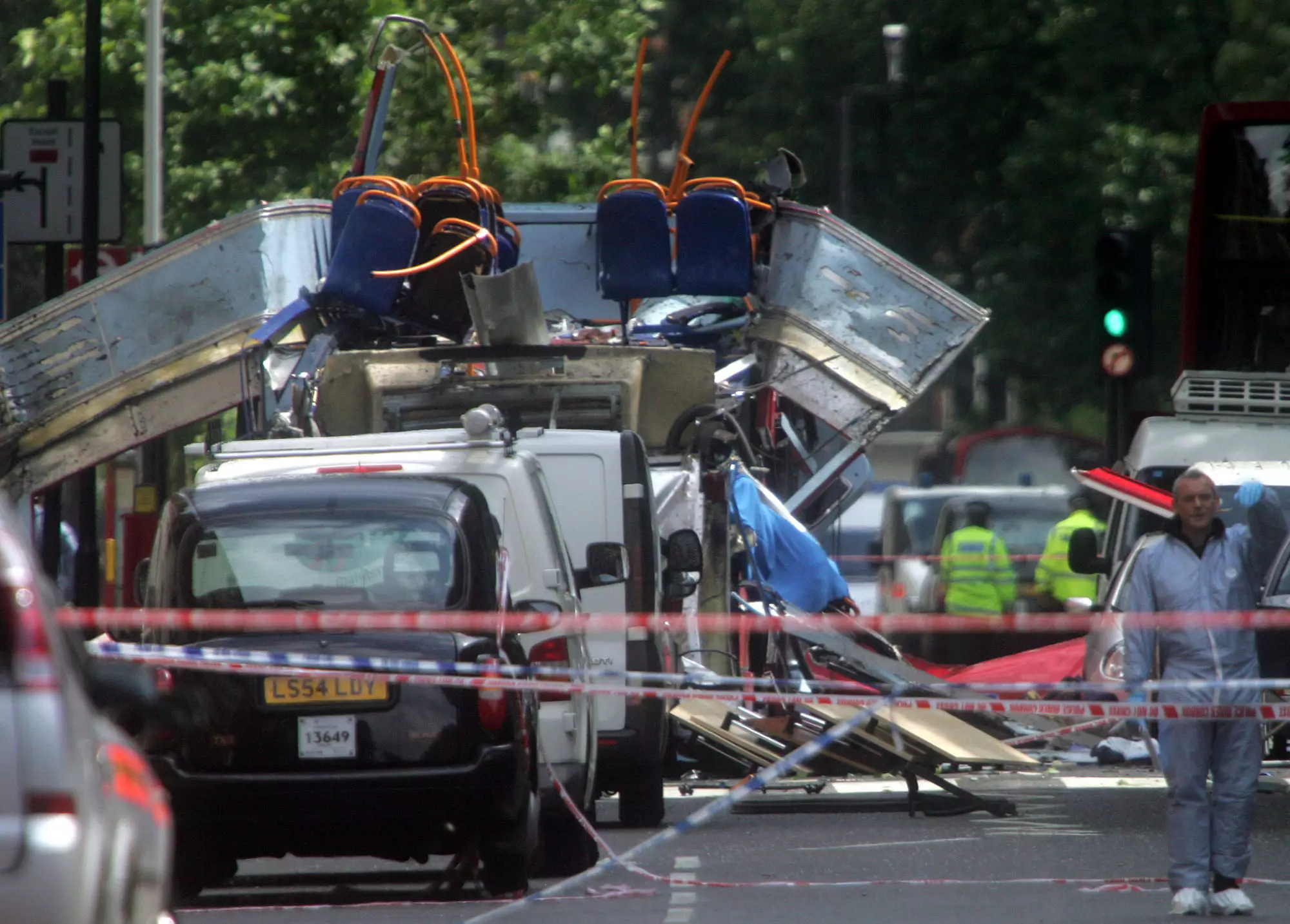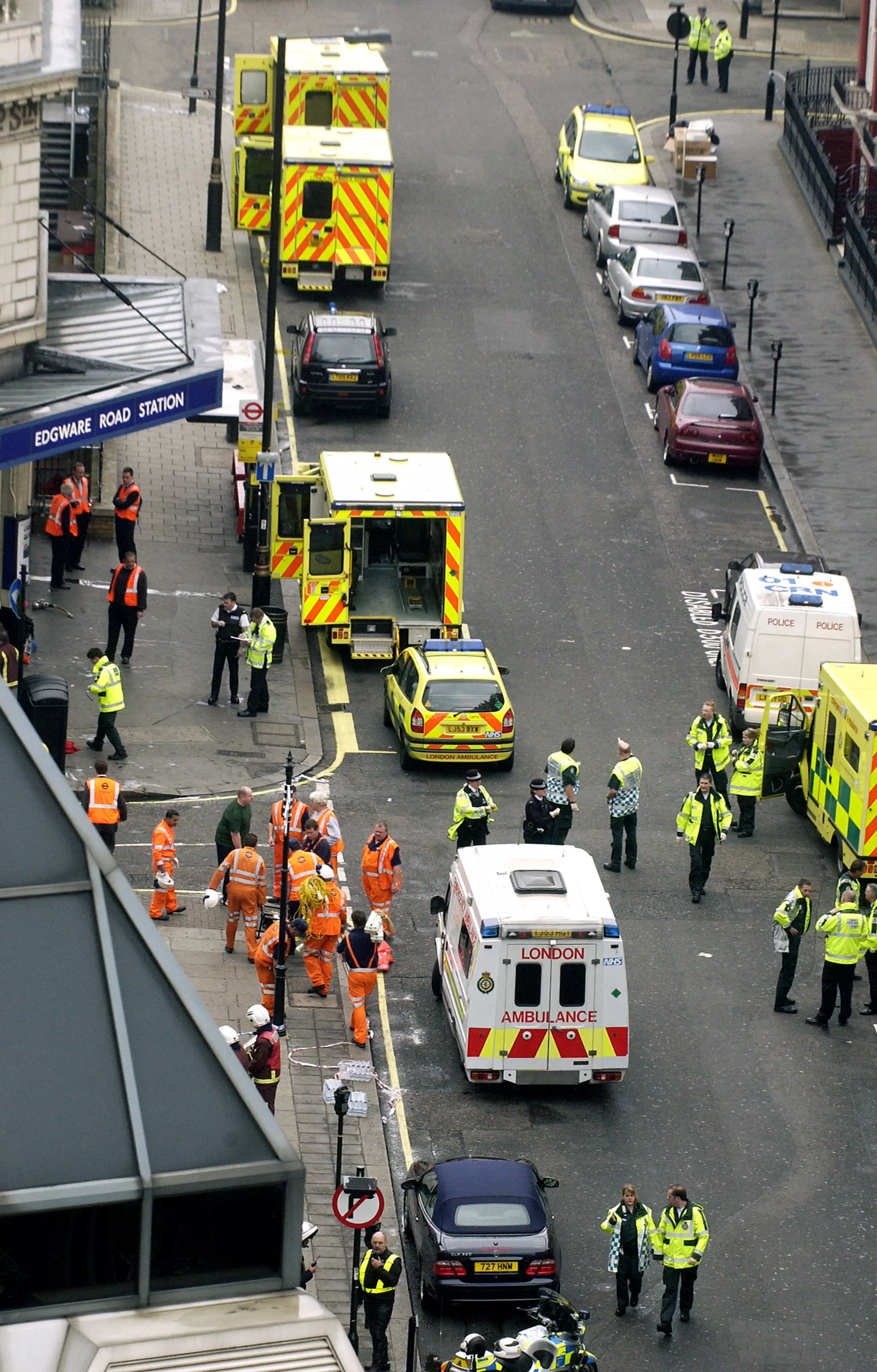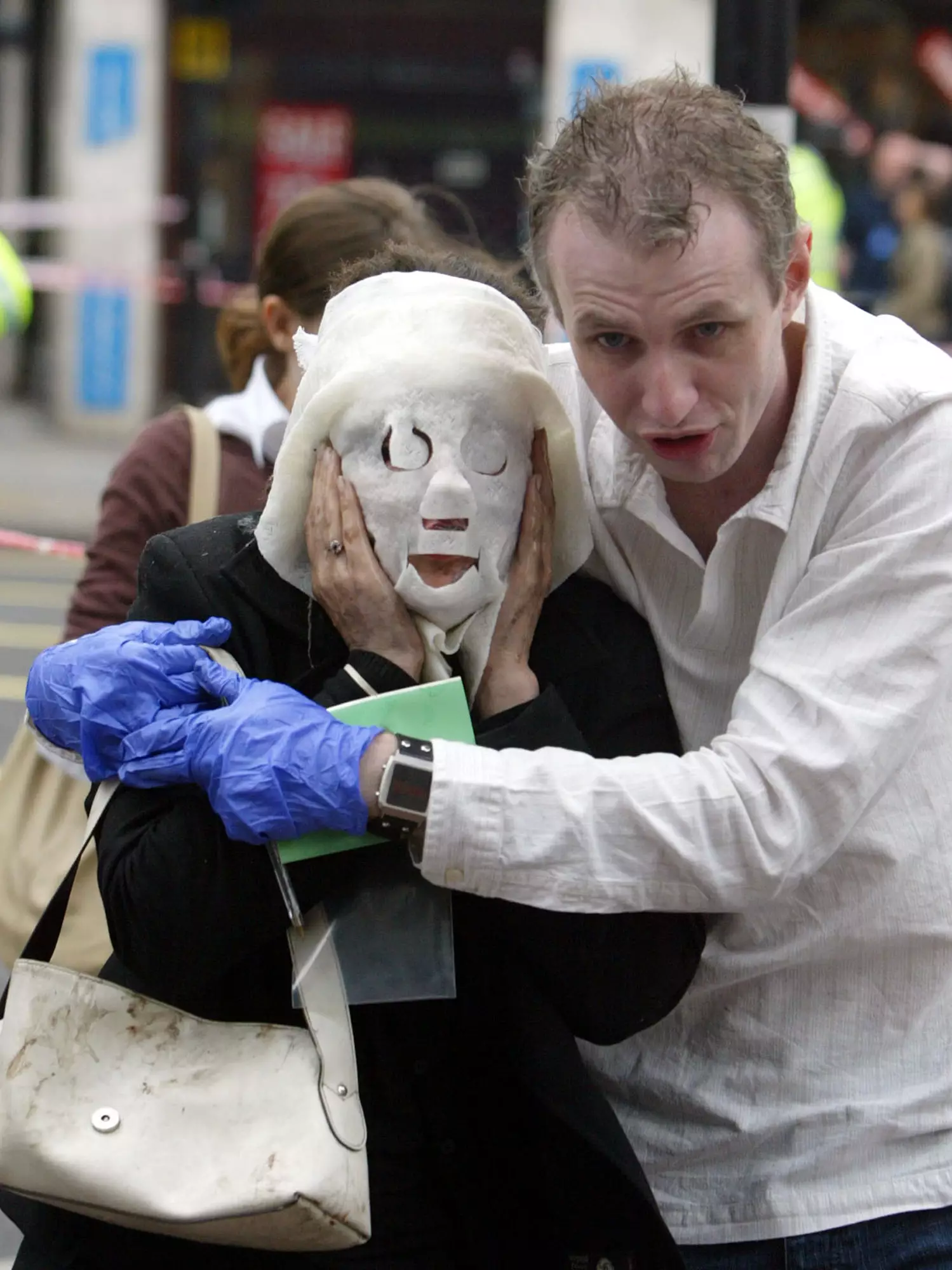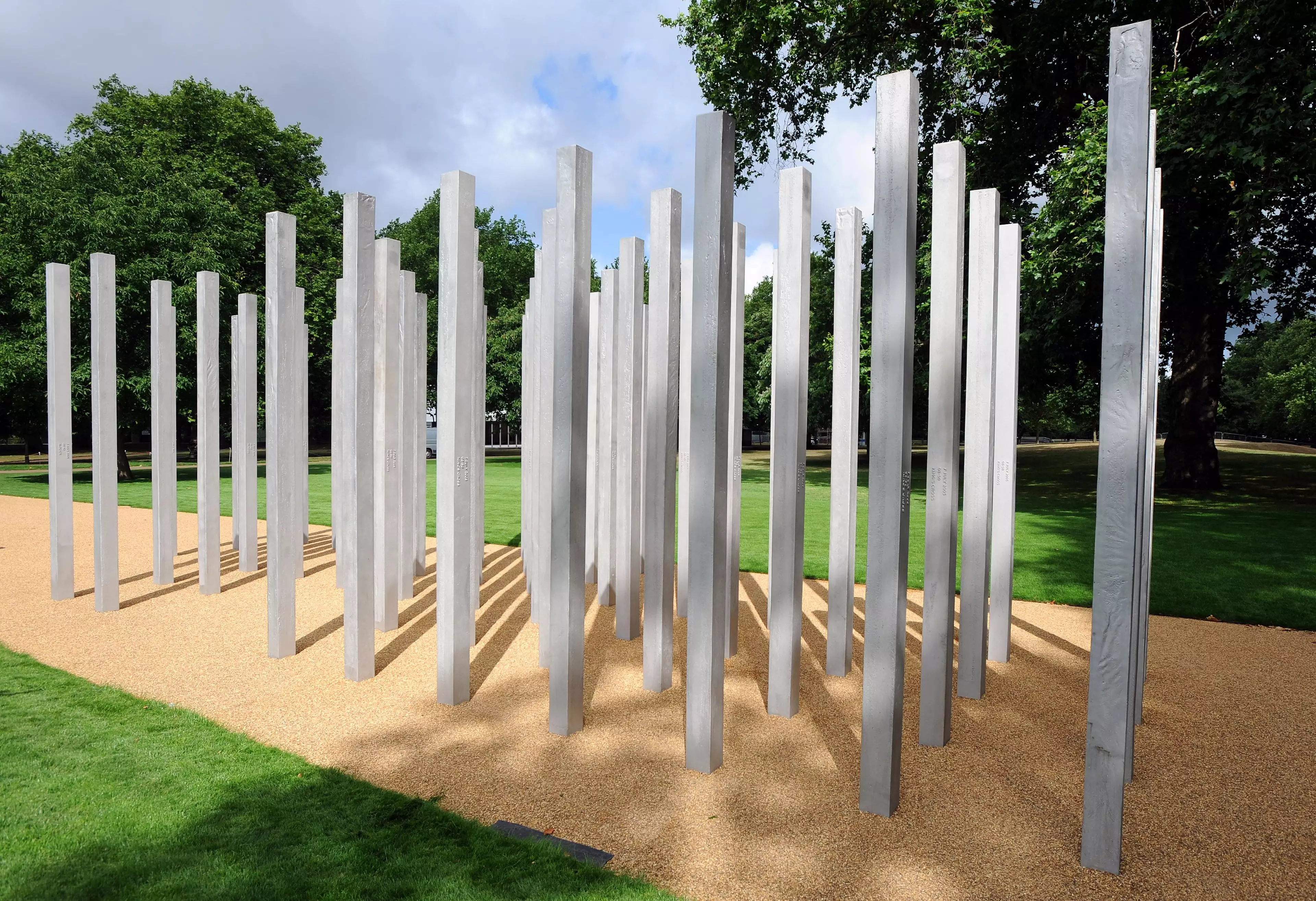
Credit: PA
On July 2, 2005 the people of London found out they had won the bid to host the 2012 Olympic Games. It was a great day for the city but, less than 24 hours later, 52 people would be killed and hundreds more injured in the single worst terrorist attack to ever take place on British soil.
Four terrorists, Mohammad Sidique Khan (30), Germaine Lindsay (19), Shehzad Tanweer (22) and Hasib Hussain (18) carried out the atrocious attack. Until that day they had all lived normal lives and were unknown to the police. The bombs they used were homemade organic peroxide-based devices inside backpacks. Men matching the description of the terrorists were seen on CCTV hugging at London's King's Cross station, where they had arrived after travelling from Luton having driven from Leeds, before splitting up and going off to cause the devastation.

Credit: PA
Advert
Three of the four bombs went off just before 8.50am on tube trains departing from King's Cross. Mohammad Sidique Khan detonated his device on a westbound Circle Line train heading towards Paddington. It killed six people.
Daniel Biddle lost both his legs, his left eye and his spleen in the attack. Speaking at the inquest, he said: "As I looked around, he (Mohammad Sidique Khan) looked up and I saw a quick movement. Then there was a big, white flash.
"The kind of noise you get when you tune a radio in. It felt like the carriage I was in expanded at a fast rate and then contracted quickly.
"And with that it blew me off my feet and through the carriage doors into the tunnel."
Shehzad Tanweer was on board a Circle Line train between Liverpool Street and Ladgate when an explosion killed seven people. Phillip Duckworth survived the attack but was stood so close to the bomber that he was left blind in one eye after a fragment of Tanweer's shin hit him in the face.

Credit: PA
Advert
The third, and deadliest, attack happened on the Piccadilly Line between King's Cross and Russell Square. Germaine Lindsay's bomb killed 26 people.
The fourth attack happened at 9.47am, roughly an hour after the others. Hasib Hussain detonated his device on a double-decker bus in Tavistock Square and it killed 13. This attack happened in front of the British Medical Association headquarters, where a conference was being held. This meant that there were dozens of doctors available to offer their lifesaving skills.
If you knew that one of your loved ones took that route to work there was nothing you could do but sit and wait, watching the horror unfold on TV. If you were lucky, your loved one survived unscathed. However, for others, the very worst happened.
One of those killed on the number 30 bus was Philip Russell. He was 28 years old. He sent a text message to his dad at around 9.30am, saying he was going to get a bus. Devastatingly, the family identified his body on the day he was due to turn 29.
It took a barrister almost four hours at the inquest to describe where each victim had been sitting or standing, to describe their injuries and to state whether they had suffered in any way before they died.
Bravery and courage emerged out of the tragedy, with stories of members of the public getting involved when risking their own lives to help others. Of the survivors, many have gone on to be inspirational speakers or authors. Martine Wright, who lost both of her legs in the Aldgate attack, went on to become a London 2012 Paralympian. She told the Daily Mirror: "Out of something so, so awful - in the darkest times where you think you won't able to carry on - to then be able to carry on with the love and support you have around you, to then go off and have the opportunity to do the things I've done, is amazing.
"My mantra is 'anything is possible'. I'm just so lucky I survived that day."
That being said, it was by no means an easy journey for those who survived. Post Traumatic Stress Disorder, life-changing injuries and above all an extreme feeling of guilt were just some of the obstacles facing survivors.

Credit: PA
Advert
Hero George Psaradakis was driving the bus that was targeted. He ran towards the top deck after the explosion and began helping people. Speaking to the Daily Mirror, he managed to sum up the tragedy better than anyone. He said: "The horror of what I witnessed is etched indelibly on my heart, but I saw so many wonderful things, too. Sheer altruism, benevolence, people going out of their way to help others.
"What I saw was the worst of people mixed with the best. It was a sacrilege, but we will not let these people win. They have caused so much pain to people's lives but they will never achieve what they want. They are a few against many."
Words Claire Reid
Featured Image Credit: